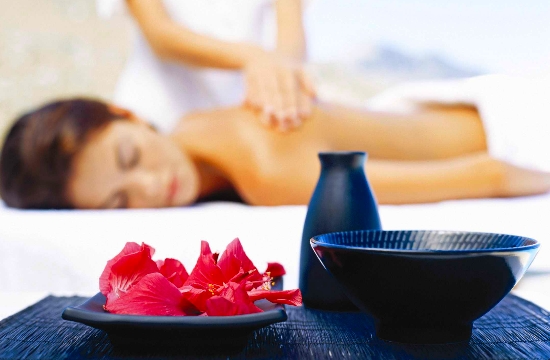Our Terms & Conditions | Our Privacy Policy
Tornos News | A new era for luxury travel in Asia Pacific
A new era is dawning for luxury travel in the Asia Pacific region, with affluent travelers now placing an emphasis on personal well-being, authentic destination connection, and meaningful life experiences. This is the key finding of new research from Luxury Group by Marriott International, which profiles the region’s high-net-worth (HNW) travelers, revealing a radical shift in the priorities and motivations of luxury travel.
From show to substance
According to the research, which surveyed 1,750 affluent travelers from Australia, Singapore, India, Indonesia, South Korea, Japan, and Thailand, luxury travelers are moving away from excess and quantity and redefining travel as a personal experience that reflects their values.
“Luxury travelers are more conscious than ever,” says Oriol Montal, Regional Vice President, Luxury, Marriott International. “They are looking for trips that promote well-being, provide emotional value, and reflect their identity.”
Wellness: The New Priority
Wellness is now at the heart of travel decisions. In 2025, 90% of respondents said wellness experiences were a determining factor in booking a trip, up from 80% the previous year. This doesn’t just mean luxury spas, but holistic experiences such as forest therapy, nutritional retreats, sound therapies ,and sleep therapies. Asia is the top destination for such trips, with 26% planning specialized wellness retreats.
More spending – more demands
Travel sentiment remains strong, with 72% planning to increase spending on luxury travel in 2025. The highest intentions are recorded in Australia (85%), Indonesia (81%), and Singapore (80%). The family experience stands out: 47% say they are more willing to spend when traveling with family.
At the same time, trust in well-known hospitality brands is growing. Travelers are choosing recognized hotel chains over independent accommodations, seeking reliability, a curated experience, and a higher level of service.
The new dynamic of destinations
93% of high-income travelers say they prefer to return to destinations they love and have an emotional connection to. However, these returns are now made with the aim of deepening the experience, connecting with local communities, and reliving important moments.
At the same time, new destinations are emerging dynamically: Bangladesh (26%), New Zealand (24%), and Cambodia (23%) are among the ten most popular for 2025, alongside stable values such as Australia, Japan, and China.
Travel as a curated experience
Luxury travelers are taking fewer trips, but with longer durations and meticulous planning. Short stays have increased from 3 to 4 nights, while bookings for longer trips are made 2-3 months in advance. 93% expect personalized experiences, while 62% plan their trip in every detail.
Nature is becoming a key element of luxury travel: 92% state that contact with nature is a priority, while bookings for excursions in the countryside and safaris are increasing significantly.
New travel identities
The survey also identifies new social trends in travel groups:
Guardian Trailsetters: Single-parent families on a trip increased from 15% to 24%. They prefer destinations with educational, cultural, or religious content, e.g., religious festivals (41%), educational trips (38%) or safaris (35%).
Impact Explorers: Gen Z travelers choose destinations such as Australia, Sri Lanka, and Thailand, focusing on experiences close to nature and cultural discovery. 47% want contact with nature, 45% seek wildlife, and 43% prefer adventure sports trips.
Venture Travelists: Travelers who combine travel and entrepreneurship are on the rise. In 2025, 86% say they explore investment opportunities while traveling – a trend that shows how luxury is now combined with professional pursuit.
Images are for reference only.Images and contents gathered automatic from google or 3rd party sources.All rights on the images and contents are with their legal original owners.



Comments are closed.